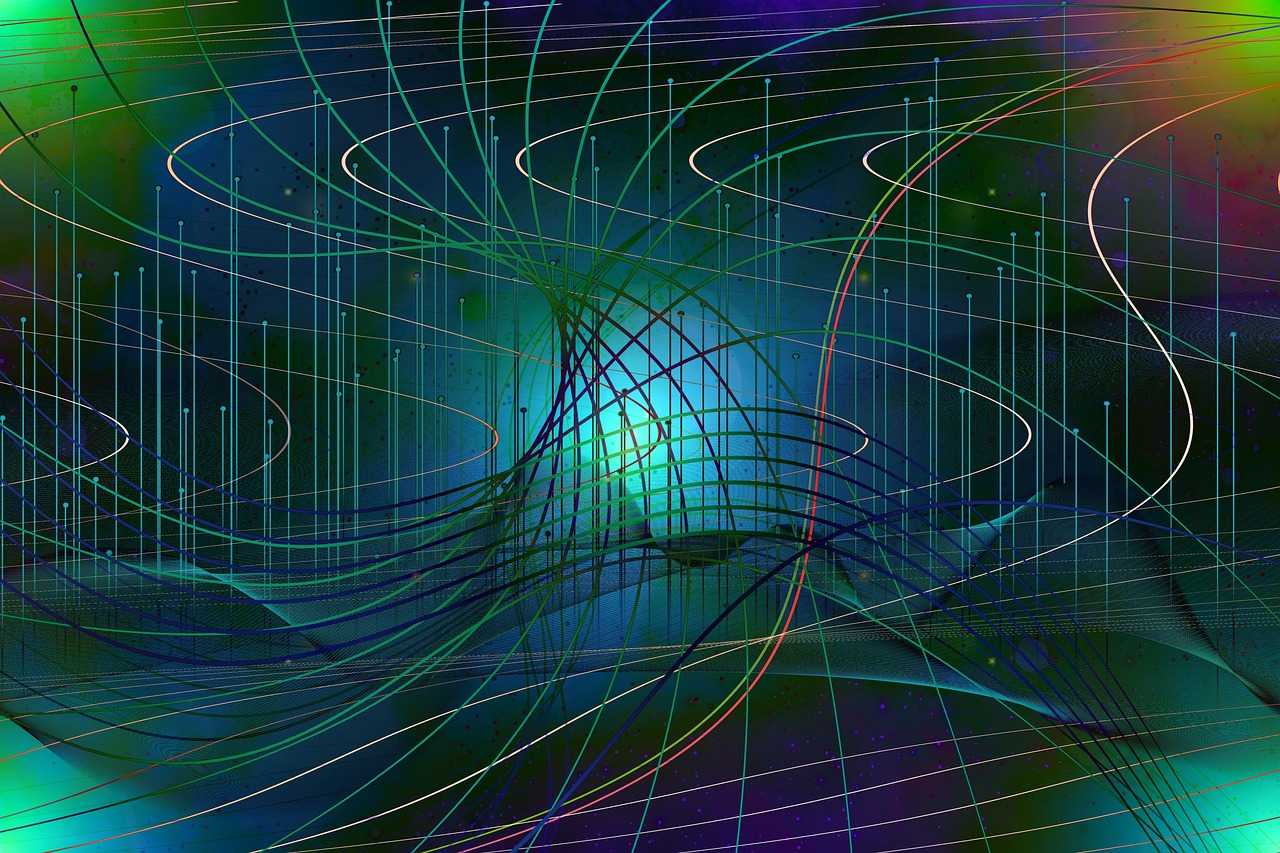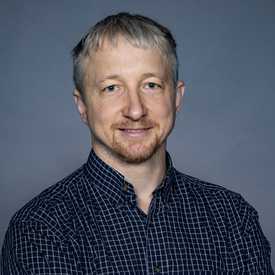In Quantum Sensing, What Beats Beating Noise? Meeting Noise Halfway.
September 16, 2025
(Credit: Pixabay/geralt)
Noise is annoying, whether you’re trying to sleep or exploit the laws of quantum physics. Although noise from environmental disturbances will always be with us, JQI Fellow Alexey Gorshkov and his colleagues may have found a new way of dealing with it at the microscopic scales where quantum physics reigns. Addressing this noise could make possible the best sensors ever made, with applications ranging from health care to mineral exploration.
By taking advantage of quantum phenomena known as superposition and entanglement, researchers can measure subtle changes in the environment. But to do this, they must be able to see through the noise caused by environmental sources such as stray magnetic fields to detect the important change—for example, an important signal from the brain.
New findings, detailed recently in the journal Physical Review Letters, would enable interlinked groups of quantum objects, such as atoms, to better sense the environment in the presence of noise. A horde of unlinked quantum objects can already outperform a conventional sensor. Linking them through the process of quantum entanglement can make them perform better still. However, entangling the group can make it vulnerable to environmental noise that causes errors, making the group lose its additional sensing advantage.
"There is a lot of work and expertise at QuICS, JQI, and RQS on sensing and on error correction separately, but we have done surprisingly little at the intersection of the two," says Gorshkov, who is also a physicist at the National Institute of Standards and Technology (NIST). "The time was thus ripe to find new exciting ways to marry sensing and error correction."
The team’s theoretical solution specifies how to design a group of quantum objects called qubits—also known as the units of data in quantum computers—before they are used for the task of sensing. Rather than preparing the interlinked qubits in a way that will correct all the errors they experience, the team has found that correcting only some of the errors makes the sensor become more robust in the face of noise. The group of entangled qubits loses a bit of sensitivity in the process, but the trade is worthwhile, because the sensor still outperforms unentangled qubits.
“Usually in quantum error correction, you want to correct the error perfectly,” says Cheng-Ju (Jacob) Lin, one of the paper’s authors and a former postdoctoral fellow at JQI. “But because we are using it for sensing, we only need to correct it approximately rather than exactly. As long as you prepare your entangled sensor the way we discovered, it will protect your sensor.”
Qubits can exist in multiple energy states, such as high and low, but they also can exist in a “superposition” of those states, simultaneously exploring the possibilities of being in all the states. Superposition is a property that quantum computers are intended to harness to solve problems conventional computers find intractable, and it can also make a qubit highly sensitive to minute changes in its environment, such as the presence of a faint magnetic field, which would measurably affect the qubit’s energy state. Quantum-enhanced measurement techniques like this allow for higher precision than conventional sensing methods, making them useful in applications such as navigation.
But qubits can get even more sensitive with the use of entanglement, a phenomenon where multiple objects have interlinked quantum states. When a group of qubits is entangled, each qubit senses the signal not only directly but also through its links with other qubits, thereby amplifying the signal—making the group even better than unentangled qubits at sensing slight changes.
Increasing the number of entangled qubits dramatically improves the group’s capabilities. For example, compared to a single qubit in superposition, 100 unentangled qubits would be 10 times more sensitive, whereas 100 entangled qubits would be 100 times as sensitive.
The trouble is that entangling qubits generally requires complete isolation from environmental changes such as mechanical vibrations or temperature shifts. Such disturbances create what quantum technology designers call noise—a perennial problem for quantum computers and quantum sensing alike.
The team’s approach designs the group of entangled qubits so they can tolerate some noise-related errors. Building on observations seen in others’ experiments, the team applies techniques for correcting corrupted data in quantum computers—known as quantum error correction codes—to make the group of qubits robust in the face of noise.
“In analyzing these error correction codes, we found that there is a family of codes that protects entangled sensors,” Lin says. “One type of error correction code enables entangled qubits to detect magnetic fields with higher precision than unentangled qubits, even if some of the entangled qubits become corrupted with errors.”
While other teams’ experiments suggested the result, Lin says that the new result places the findings on a more mathematically rigorous footing.
“It may take time for technologists to create sensors that take advantage of the findings,” he says. “However, the community’s understanding of quantum mechanics is good enough that we think the results will hold up under experiment, which we invite others to test in the lab.”
This story was originally published by NIST News. It has been adapted with minor changes here. JQI is a research partnership between UMD and NIST. Gorshkov is also a Fellow of the Joint Center for Quantum Information and Computer Science (QuICS) and a senior investigator at the National Science Foundation Quantum Leap Challenge Institute for Robust Quantum Simulation (RQS); Lin was also associated with both.
Experts
People
![headshot of Alexey Gorshkov]()
Alexey Gorshkov
Adjunct Professor
Groups
JQI
